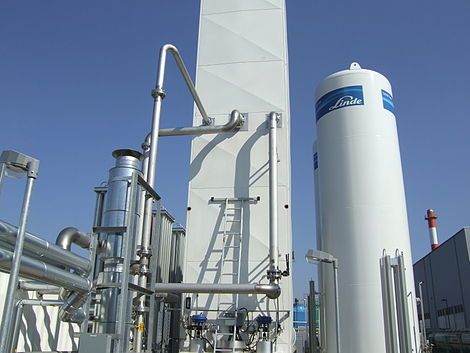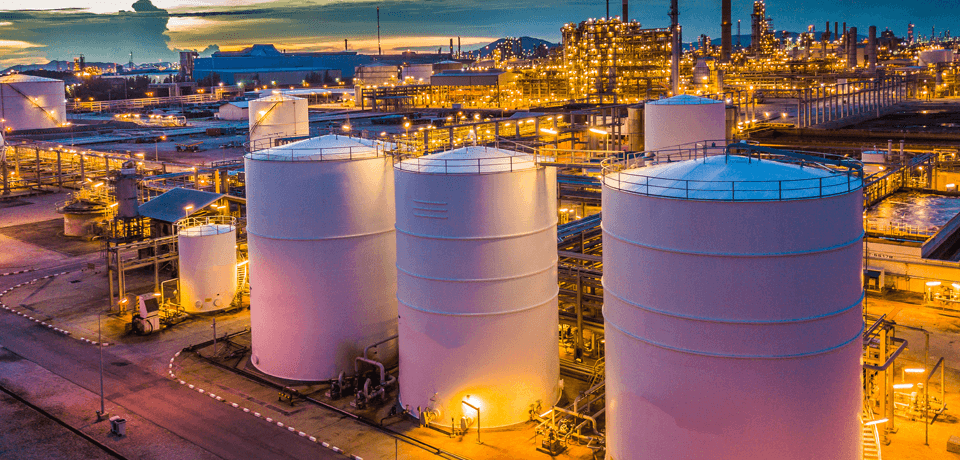
Revolutionizing Industrial Gas Supply: The Power of Digital Solutions and IoT
The industrial gas supply industry plays a crucial role in a wide range of sectors, including healthcare, manufacturing, and food and beverage. These gases, which include oxygen, nitrogen, and hydrogen, are used in various processes such as welding, cooling, and sterilization. The demand for industrial gases is expected to increase in the coming years, driven by the growth in end-use industries and the increasing adoption of clean energy technologies.
To meet this growing demand and stay competitive, companies in the industrial gas supply industry are turning to digital solutions. These solutions can help improve efficiency, reduce costs, and enhance the customer experience. Here are some of the ways in which digital solutions are transforming the industrial gas supply industry:

Remote monitoring and control
One of the key benefits of digital solutions is the ability to remotely monitor and control industrial gas systems. This can be done through the use of sensors and other monitoring devices that transmit data in real-time to a central control system. This allows companies to quickly identify and address any issues, reducing downtime and maintenance costs.

Predictive maintenance
Digital solutions can also be used to predict when maintenance is required, allowing companies to schedule maintenance in advance and avoid unexpected breakdowns. This can be achieved through the use of machine learning algorithms that analyze data from sensors and other monitoring devices to identify patterns and predict when maintenance is needed.
Supply chain optimization
Digital solutions can also be used to optimize the supply chain by automating tasks such as inventory management and logistics. For example, companies can use sensors to track the location and availability of gas tanks and other equipment, allowing them to quickly respond to customer needs.
Customer engagement
Digital solutions can also be used to improve the customer experience by providing real-time information and personalized recommendations. For example, companies can use customer data to provide tailored product recommendations and offer personalized pricing based on the customer's usage patterns.
In conclusion, digital solutions are playing a crucial role in the future of the industrial gas supply industry. By improving efficiency, reducing costs, and enhancing the customer experience, these solutions are helping companies stay competitive in a rapidly evolving market. As the demand for industrial gases continues to grow, it is likely that the adoption of digital solutions will become even more widespread in the coming years.
How IoT can Help
The Internet of Things (IoT) refers to the network of connected devices that can collect and share data over the internet. In the industrial gas supply industry, IoT can be used to improve efficiency, reduce costs, and enhance the customer experience.
One of the key ways in which IoT can help the industrial gas supply industry is through remote monitoring and control. By using sensors and other monitoring devices, companies can collect data on the performance and usage of industrial gas systems in real-time. This data can be transmitted to a central control system, allowing companies to quickly identify and address any issues, reducing downtime and maintenance costs.
IoT can also be used for predictive maintenance, by using machine learning algorithms to analyze data from sensors and other monitoring devices to predict when maintenance is required. This can help companies schedule maintenance in advance and avoid unexpected breakdowns, improving efficiency and reducing costs.
In addition, IoT can be used to optimize the supply chain by automating tasks such as inventory management and logistics. For example, companies can use sensors to track the location and availability of gas tanks and other equipment, allowing them to quickly respond to customer needs.
Finally, IoT can be used to improve the customer experience by providing real-time information and personalized recommendations. For example, companies can use customer data to provide tailored product recommendations and offer personalized pricing based on the customer's usage patterns.
Overall, the adoption of IoT in the industrial gas supply industry can help companies improve efficiency, reduce costs, and enhance the customer experience, enabling them to stay competitive in a rapidly evolving market.